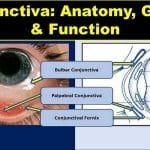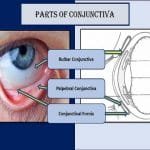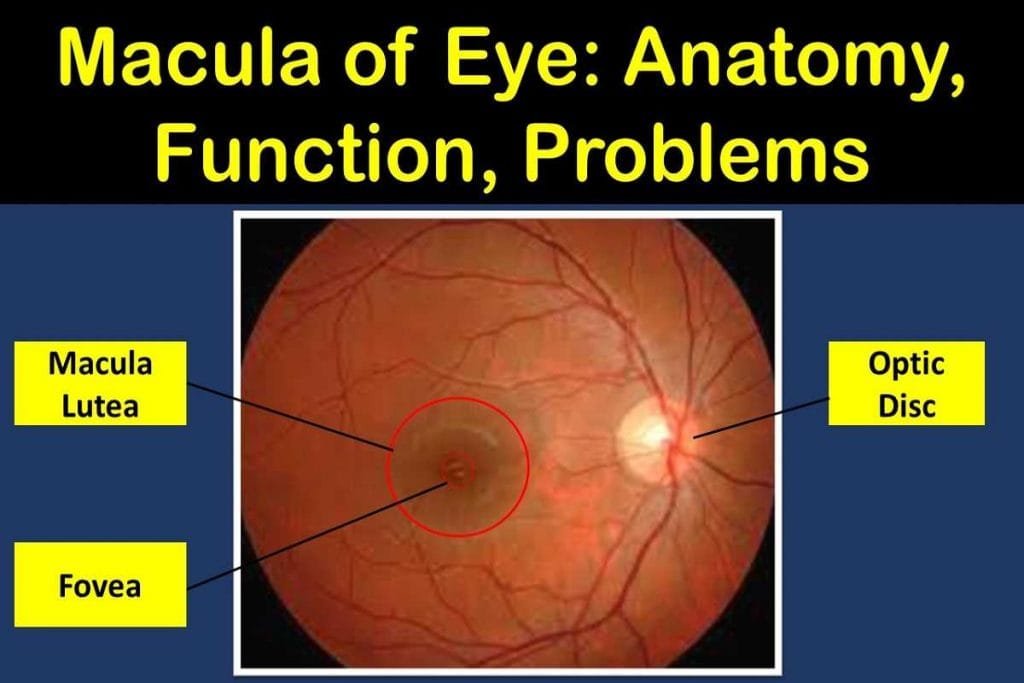High blood pressure and flashing lights in the eyes: High blood pressure, also known as hypertension, is a common condition that affects millions of people worldwide. It is defined as a reading of 140/90 mmHg or higher and occurs when the force of blood against the blood vessels is too high.
If left untreated, high blood pressure can lead to serious health problems, including heart disease, stroke, and kidney failure.
In this blog post, we will explore the connection between high blood pressure and flashing lights in the eyes. Flashing lights in the eyes, also known as photopsia, can be a symptom of various eye conditions, including migraines, retinal detachment, and glaucoma.
We will examine how high blood pressure can cause flashing lights in the eyes and the importance of seeking prompt medical attention if you experience this symptom.
Understanding Flashing Lights in Eyes
1) What are flashing lights in the eyes?
Flashing lights in the eyes, also known as photopsia, refer to the perception of bright flashes of light that appear in the field of vision. These flashes can last for a few minutes or several hours and can range from brief sparks to long-lasting streaks.
2) Common causes of flashing lights in eyes
There are several common causes of flashing lights in the eyes, including:
Migraines: Migraines can cause visual disturbances, including flashing lights, temporary vision loss, and blind spots.
Retinal detachment: Flashing lights in the eyes can be a sign of retinal detachment, a serious condition where the retina separates from the back of the eye.
Glaucoma: Glaucoma, a condition that damages the optic nerve, can cause flashing lights in the eyes, especially when the pressure inside the eye is elevated.
Vitreous detachment: Flashing lights in the eyes can also be a sign of vitreous detachment, where the jelly-like substance inside the eye detaches from the retina.
3) Symptoms of flashing lights in eyes
In addition to flashing lights, other symptoms that may accompany photopsia include:
- Temporary vision loss or blindness
- Blind spots in the field of vision
- Floaters, or small specks that float across the field of vision
- A headache or eye pain
High Blood Pressure and the Eye
1) How does high blood pressure affect the eye?
High blood pressure can affect the eye in several ways. When blood pressure is elevated, the increased pressure can damage the blood vessels in the eye, leading to retinal damage and vision problems.
Additionally, high blood pressure can damage the optic nerve, which is responsible for transmitting visual signals from the eye to the brain. Over time, this damage can lead to vision loss.
2) The connection between high blood pressure and flashing lights in the eyes
Elevated blood pressure can cause flashing lights in the eyes by putting pressure on the blood vessels in the retina and the optic nerve. This pressure can cause the blood vessels to leak, leading to damage and inflammation in the eye.
Additionally, high blood pressure can increase the risk of developing retinal detachment, a condition that can cause flashing lights in the eyes.
3) How high blood pressure can lead to eye problems?
In addition to causing flashing lights in the eyes, high blood pressure can also lead to several eye problems, including:
Retinal damage: High blood pressure can damage the blood vessels in the retina, leading to vision problems and an increased risk of retinal detachment.
Optic nerve damage: High blood pressure can damage the optic nerve, leading to vision loss and even blindness.
Glaucoma: Elevated blood pressure can increase the risk of developing glaucoma, a condition that damages the optic nerve and can cause vision loss.
Diagnosis of High Blood Pressure and Flashing Lights in Eyes
1) Importance of regular eye exams
Regular eye exams are important in detecting and managing eye problems related to high blood pressure. During an eye exam, an eye doctor can check for any signs of damage to the retina, optic nerve, and other parts of the eye.
Regular eye exams can help detect eye problems early, when they are more treatable, and help maintain good vision.
2) How to diagnose high blood pressure?
High blood pressure is usually diagnosed through a series of blood pressure readings. Your doctor may take multiple readings over a period of time to ensure accuracy and to monitor changes in your blood pressure over time.
In addition, your doctor may perform tests to determine the cause of your high blood pressure and rule out any underlying health problems.
3) Tests to detect flashing lights in eyes
To diagnose flashing lights in the eyes, your doctor may perform several tests, including:
Comprehensive eye exam: During a comprehensive eye exam, your eye doctor will check for any signs of damage to the retina and optic nerve, as well as perform a visual field test to check for blind spots in your vision.
Retinal exam: A retinal exam, also known as a fundus exam, is an examination of the back of the eye that can help detect retinal damage and detachment.
Optical coherence tomography (OCT): OCT is a non-invasive imaging test that can help detect retinal damage and detachment.
Treatment for High Blood Pressure and Flashing Lights in Eyes
1) Lifestyle changes to manage high blood pressure
Lifestyle changes can play an important role in managing high blood pressure and reducing the risk of associated eye problems, such as flashing lights in the eyes. Some lifestyle changes that can help manage high blood pressure include:
Maintaining a healthy diet: Eating a diet low in sodium and high in fruits, vegetables, and whole grains can help lower blood pressure.
Exercising regularly: Regular physical activity can help lower blood pressure and reduce the risk of developing associated eye problems.
Quitting smoking: Smoking can significantly increase blood pressure and increase the risk of eye problems.
Limiting alcohol consumption: Excessive alcohol consumption can raise blood pressure and increase the risk of eye problems.
Managing stress: Chronic stress can raise blood pressure, making it important to manage stress through techniques such as meditation, yoga, and deep breathing.
2) Medications for high blood pressure
In addition to lifestyle changes, medications may be necessary to manage high blood pressure and reduce the risk of associated eye problems. Common medications used to treat high blood pressure include:
Diuretics: These medications help remove excess fluid from the body and reduce blood volume, which can help lower blood pressure.
ACE inhibitors: These medications help relax blood vessels and reduce the workload on the heart, which can lower blood pressure.
Beta-blockers: These medications slow the heartbeat and reduce the amount of blood pumped out of the heart, which can lower blood pressure.
Calcium channel blockers: These medications relax blood vessels and reduce the workload on the heart, which can lower blood pressure. Your doctor will determine the best medication for your specific condition, taking into account your age, overall health, and other medical conditions.
3) Treatments for flashing lights in the eyes
Treatment for flashing lights in the eyes will depend on the underlying cause. In some cases, treatment may not be necessary, as the flashing lights may resolve on their own.
However, in other cases, treatment may be necessary to prevent vision loss. Some common treatments for flashing lights in the eyes include:
Eye drops: In some cases, eye drops may be used to reduce inflammation and improve blood flow to the eye.
Surgery: If a retinal detachment is causing flashing lights in the eyes, surgery may be necessary to repair the detachment and prevent vision loss.
Laser therapy: In some cases, laser therapy may be used to treat retinal tears and prevent retinal detachment. If you experience flashing lights in the eyes, it is important to seek prompt medical attention to determine the underlying cause and receive appropriate treatment.
Your eye doctor may refer you to a specialist, such as a retinal specialist or a neurologist, for further evaluation and treatment.
Prevention of High Blood Pressure and Flashing Lights in Eyes
1) Tips to maintain healthy blood pressure
Maintaining healthy blood pressure is an important part of preventing associated eye problems, such as flashing lights in the eyes. Some tips to maintain healthy blood pressure include:
Maintaining a healthy diet: Eating a diet low in sodium and high in fruits, vegetables, and whole grains can help lower blood pressure.
Exercising regularly: Regular physical activity can help lower blood pressure and reduce the risk of developing associated eye problems.
Quitting smoking: Smoking can significantly increase blood pressure and increase the risk of eye problems.
Limiting alcohol consumption: Excessive alcohol consumption can raise blood pressure and increase the risk of eye problems.
Managing stress: Chronic stress can raise blood pressure, making it important to manage stress through techniques such as meditation, yoga, and deep breathing.
2) Importance of regular eye exams
Regular eye exams are an important part of preventing eye problems and maintaining good eye health. Eye exams can help detect eye problems early, when they are most treatable, and can also help monitor the effects of high blood pressure on the eye.
3) Healthy habits to protect your eyes
In addition to regular eye exams, there are several healthy habits that can help protect your eyes and prevent eye problems:
Wearing protective eyewear: Wearing protective eyewear, such as sunglasses or safety glasses, can help protect your eyes from harmful UV rays and other environmental hazards.
Getting enough sleep: Getting adequate sleep is important for maintaining good eye health and reducing the risk of eye problems.
Taking regular breaks from screens: Spending long periods of time looking at screens, such as computers and smartphones, can strain the eyes and increase the risk of eye problems. Taking regular breaks and using the 20-20-20 rule can help reduce eye strain.
Staying hydrated: Staying hydrated can help maintain good eye health and reduce the risk of eye problems. By following these tips and maintaining healthy habits, you can help protect your eyes and prevent eye problems, including flashing lights in the eyes caused by high blood pressure.
Final Words from Health Kura
In this blog, we discussed the connection between high blood pressure and flashing lights in the eyes. High blood pressure can cause eye problems, including flashing lights in the eyes, due to its effects on the blood vessels in the eye.
Regular eye exams and maintaining a healthy lifestyle, including managing stress and following a healthy diet, can help prevent eye problems and maintain good eye health.
High blood pressure and its effects on the eye should not be ignored. It is important to monitor blood pressure and seek medical help if experiencing symptoms such as flashing lights in the eyes.
Early detection and treatment of high blood pressure can help prevent serious eye problems and maintain good eye health.
If you are experiencing symptoms such as flashing lights in the eyes, it is important to seek medical help as soon as possible.
A doctor can diagnose the underlying cause and recommend appropriate treatments to prevent further eye problems and maintain good eye health.
Don’t hesitate to contact your doctor if you have any concerns about your eye health or high blood pressure.
Video: High Blood Pressure Effects on the Eye
You Might Also Like
1) A Midday Nap Drastically Reduces Blood Pressure
2) Low Blood Pressure (Hypotension): Treatment, & More
3) Broken or Popped Blood Vessel in Eye: Causes & Healing
4) Spiritual Meaning of Broken Blood Vessel in Eye & Treatment








